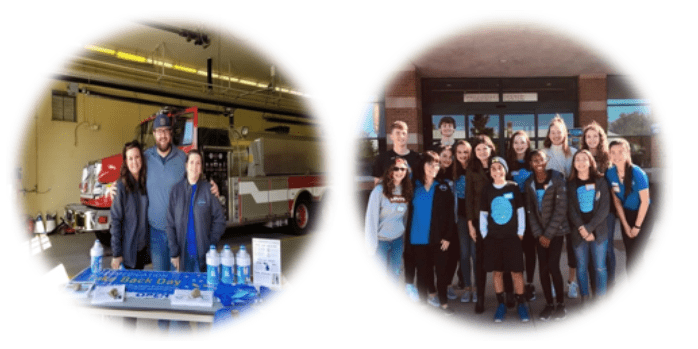
“Lakes Area Community Coalition was formed in April 2016 by members of a local Families Against Narcotics (FAN) chapter,” said the coalition’s Executive Director Joan Baert. “We grew quickly and were DFC funded in 2018. We serve the Walled Lake Consolidated School District and the communities of Walled Lake, Wixom, Wolverine Lake and Commerce Township in southwest Oakland County, Michigan.”
“In order to meet the needs of the community, we listened to our Youth Action Board and heard that they were most concerned about teen mental health right now,” said Baert. “We heard that our young people were extremely stressed by being isolated with their family members and away from friends, teachers and positive peer group activities like athletics and music. We also listened to our sector representatives and heard that they were concerned with an uptick in adult substance misuse in the home, the normalization of excessive alcohol use and increased traffic at our local marijuana retailers.”
“We are encouraged that people want to help during this time,” said Baert. “We’ve had greater attendance at many of our Zoom meetings than we’d been seeing at our in-person meetings prior to COVID-19.”
“Our youth are pushing out positive mental health and sobriety messages through their Instagram feeds, creating relevant content for their peers,” said Baert. “They helped us create ‘coping kits,’ which are small bags with helpful tools such as a stress ball, a fidget toy, dark chocolate and green tea with a card explaining their health benefits, a short mindfulness routine card, a magnet with local crisis line numbers and a coping card with student-developed tips for stress management. The coping kits are being distributed to families who pick up food boxes at our local food bank.”
“One of our local mental health care providers is working with us to promote a special mental health care package for school staff members,” said Baert. “Our media sector representative worked with us to produce a feature story in our local paper on sobriety during quarantine and the risk of addiction during this time of isolation.”
“Our social media and website traffic are way up,” said Baert. “We are creating a series of ‘ask the expert’ videos featuring our local pediatricians, psychologists and people in recovery with messages promoting healthy stress management and warning of the dangers of substance misuse. Engaging our local experts in this way increased their commitment to our work and expanded our reach as they shared the videos out on their networks.”
“Our work has moved online and it has been challenging to adapt to a new model,” said Baert. “We are also sad and disappointed to have many of our really great in-person programs cancelled or postponed. However, the need for prevention has never been greater in our community and we are committed to adapting our work to meet that need, whatever the future brings.”
“Our advice to other coalitions facing the challenges associated with working during the COVID-19 pandemic would be to ask questions and listen carefully to your community,” said Baert. “They know what is needed and they also know how to help. Now is the time to try something ‘out of the box,’ You might be thrilled to find a whole new direction to take your prevention work that really impacts your community.”



